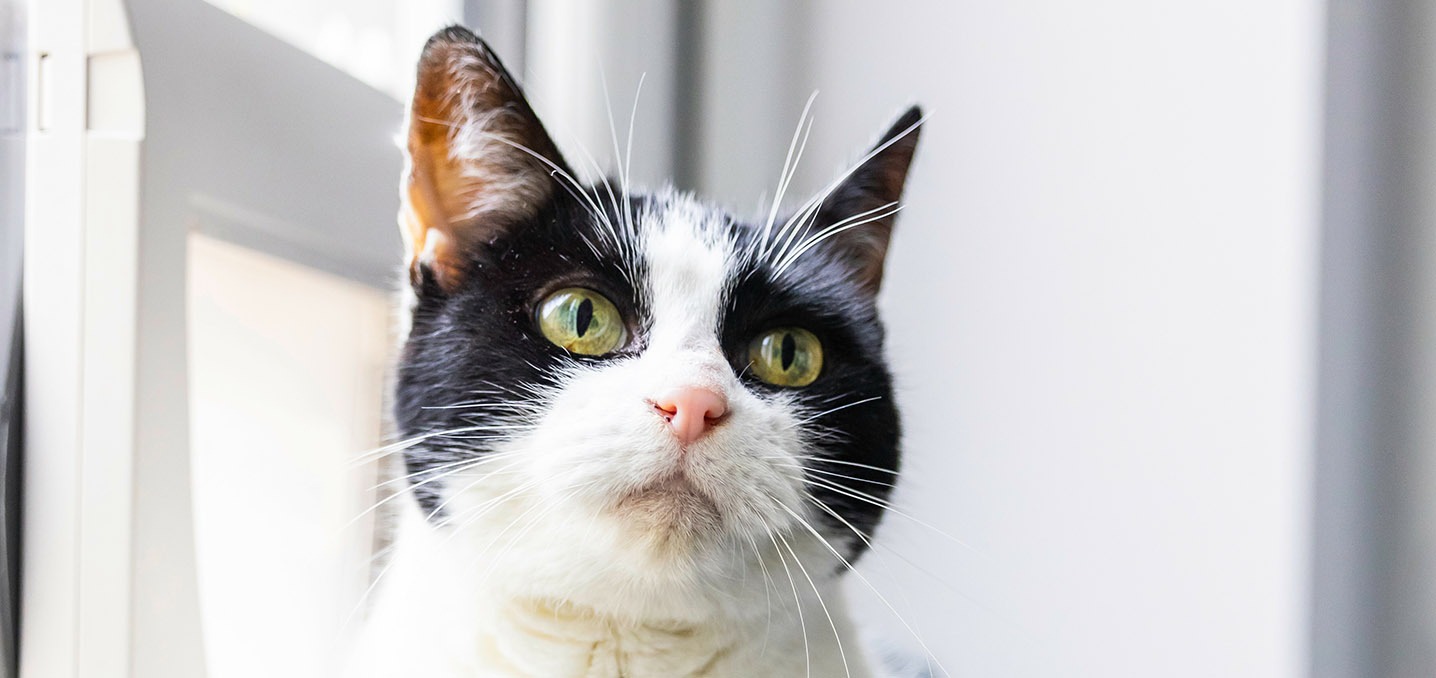Your cat might sit and watch you eat your dinner, but that doesn’t mean they should share it. Knowing what cats can – and can’t – eat means it’s easier to make the best choices when it comes to feeding your cat the right diet.
Cats are obligate carnivores, which means their digestive systems are designed for a meat-based diet. To stay fit and healthy, a cat's diet needs to include the right combination of protein, fat, carbohydrate, vitamins and minerals. The best way to ensure your cat’s diet includes these essential nutrients is to feed them high-quality cat food.
What can I feed a cat?
If you’ve just got a new cat, you might be wondering, what can cats eat? There are two main options:
- Dry food: Also known as kibble, dry cat food is convenient and cost-effective. It typically contains more carbohydrates than wet food. Dry cat food keeps for a long time and can be a cost-effective choice.
- Wet food: Usually available in cans, pouches, or trays, this soft food can contain a high percentage of water and protein. Wet cat food can be expensive, and once opened it needs to be used within a few days.
Whether to feed your cat or kitten dry food, wet food or a combination of the two depends on your and their preferences, plus considerations like convenience and your budget. Cats do enjoy variety, so feeding a mix of wet and dry food in different flavours can help your cat to enjoy their mealtimes.
Daniel Warren-Cummings, Behaviour Officer at Cats Protection, agrees. ‘It's usually best to feed your cat a mixture of wet and dry food, as this has benefits such as providing variety to your cat’s meals,’ Daniel explains. ‘In addition, providing multiple, smaller meals across the day can be a preference for many cats.’
Cats don’t have a high thirst drive, so offering them wet food can help them stay hydrated and avoid illnesses like urinary tract issues. Most cats also prefer to eat multiple, small meals each day.
Look for cat food that’s designed for your cat’s life stage. It's usually available in formulations for kittens, adults and seniors. You’ll also find foods designed for weight loss, or for specific dietary needs. Ask your vet for advice if you’re not sure which option will suit your cat best.
Always choose cat food that’s approved by UK Pet Food (formerly the Pet Food Manufacturers’ Association or PFMA). The label should also say it’s ‘complete’, meaning it contains all the nutrients your cat needs to stay healthy.
Treats are also useful for training sessions, to bond with your cat, or just to add a little variety to their diet. Remember to account for the calories from treats when feeding your cat their regular food, to avoid weight gain.
But other than cat food, what can cats eat? Here’s a quick rundown on some popular options and whether they’re a good idea or not.
Can cats eat chicken?
Many commercially available cat foods are chicken flavoured, but can cats also eat leftover chicken? Cats shouldn’t be fed raw chicken, but a small amount of plain, boiled chicken is okay as an occasional treat. Make sure it doesn’t include any seasonings, and avoid feeding your cat chicken skin or bones.
Can cats eat vegetables?
Some wet cat food contains small pieces of vegetables like carrots and peas, which add fibre, vitamins and minerals. But you don’t need to feed your cat extra vegetables. Cats shouldn’t ever eat vegetables like onions and garlic, which are toxic.
Can cats eat cheese?
Adult cats are often lactose intolerant, which means dairy products like cheese can cause digestive problems including diarrhoea, vomiting and constipation. While many cats can tolerate eating a small amount of cheese, it’s best to avoid intentionally feeding this.
Can cats drink milk?
Adult cats shouldn’t drink cow's milk because their digestive systems can’t break down the lactose. Regularly giving your cat milk can lead to gastrointestinal upset. You can buy specially formulated cat milk, but these should only be offered as an occasional treat as they’re high in calories and don’t add any nutritional value. Kittens should only drink their mother’s milk, or a species-specific replacement formula.
What can’t cats eat?
While your cat might eat anything that’s put in front of them, certain foods should always be avoided. These include:
- Raw eggs or meat
- Grapes and raisins
- Chocolate
- Caffeine
- Milk
- Bones
‘It is not recommended to feed your cat human food, due to not being designed for cats’ specific dietary needs,’ explains Daniel. 'These listed food items can be particularly dangerous to cats.’
What human foods can cats eat?
Regularly feeding your cat anything other than their normal food and the occasional treat should be avoided. But if you’ve run out of cat food, you might have something in your cupboard as an emergency standby, including:
- Salmon
- White fish
- Chicken
- Canned tuna
- Cooked beef or turkey mince
If you’re not sure what to feed your cat, always ask your vet for advice.

